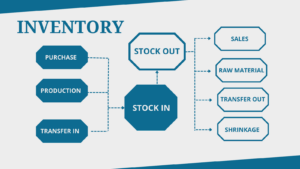Jewelry retail is a unique industry with specialized needs, particularly when it comes to managing inventory, customer relationships, and custom orders. To stay competitive and streamline operations, jewelry software can be a game-changer. If you’re a retail jewelry business owner, here are the top 10 essential facts you should know about jewelry software to optimize your business processes and drive growth.
1. Real-Time Inventory Tracking for Precision and Efficiency
Inventory management is one of the most challenging aspects of running a jewelry store. Jewelry software provides real-time inventory tracking, allowing you to monitor stock levels, movement, and trends at any given moment. By having precise knowledge of what’s available, you can avoid overstocking costly items or running out of popular pieces. Real-time tracking also helps in managing raw materials, particularly for businesses that create custom jewelry, as it monitors the availability of gems, metals, and other materials required for each piece. With the help of this software, you can significantly reduce inventory discrepancies and better meet customer demand.
2. Automated Pricing and Repricing Features to Stay Competitive
Jewelry prices fluctuate based on the cost of raw materials like gold, silver, and precious stones, so having a software system that offers automated pricing is incredibly beneficial. Jewelry software can be programmed to adjust prices based on changes in market values, ensuring that your pricing is always up-to-date and in line with competitors. This feature also helps in managing discounts and promotions, making it easier to set prices based on seasonality, demand, and competition. Automated pricing tools save time and ensure consistent pricing, which is crucial in building customer trust and brand credibility.
3. Simplified Billing and Invoicing for Faster Transactions
Speed and accuracy in billing are essential in a retail environment. Jewelry software streamlines the billing and invoicing process by generating itemized bills, applying relevant taxes, and creating professional invoices automatically. This not only speeds up transactions but also minimizes errors and inconsistencies, which can often lead to customer dissatisfaction. Additionally, with detailed invoices generated for each transaction, you can maintain a clear record of all sales, making it easier for accounting and tax purposes. The simplified billing process also helps with returns, exchanges, and refunds, improving the overall customer experience.
4. Enhanced Customer Relationship Management (CRM) to Boost Loyalty
Understanding your customers’ preferences and purchasing habits is crucial in the jewelry business, where personalized service can make a significant difference. Jewelry software typically includes CRM capabilities that allow you to track customer interactions, preferences, purchase history, and important dates like anniversaries and birthdays. With this information, you can send personalized offers, reminders for upcoming events, and even tailored recommendations, enhancing customer loyalty and repeat business. The CRM function helps you build stronger relationships and create a personalized shopping experience that customers appreciate and remember.
5. Improved Security and Data Protection for High-Value Assets
As a jewelry retailer, your inventory represents a high-value asset, and safeguarding it is critical. Jewelry software includes security features such as access controls, encryption, and audit trails to protect your inventory data. With role-based access controls, you can restrict sensitive information to authorized personnel, minimizing the risk of internal theft or misuse of data. Additionally, many software solutions offer cloud storage with regular backups, ensuring that your business’s critical data is protected against potential loss due to hardware failures or cyber threats. Enhanced security features not only protect your assets but also give you peace of mind.
6. Customizable Product Descriptions and Tagging for Better Management
Jewelry often comes in a wide variety of designs, sizes, and materials, which requires flexible categorization and tagging. Jewelry software allows you to create customizable product descriptions and tags that align with your inventory’s unique attributes. This flexibility means you can label items by material, gemstone type, weight, or even design features, making it easier for both employees and customers to find specific products. Additionally, with well-organized tagging, you can quickly generate detailed product lists for marketing purposes, create targeted promotions, and ensure that customers have all the information they need to make an informed purchase.
7. Powerful Reporting and Analytics for Informed Decision-Making
Data-driven decision-making is essential for business growth, and jewelry software provides robust reporting and analytics tools to help you analyze key metrics like sales, customer trends, inventory turnover, and seasonal demand. With detailed reports, you can identify which items are selling well, which ones need more promotion, and when to restock. Analytics also help you understand customer behavior, allowing you to adjust your marketing strategies accordingly. For example, if certain styles are more popular during holidays or wedding seasons, you can plan inventory and promotions in advance. With real-time data insights, you can make strategic decisions that contribute to long-term success.
8. Simplified Repairs and Custom Order Management
Jewelry repairs and custom orders are a significant part of the jewelry business, and managing them manually can be overwhelming. Jewelry software simplifies repair tracking and custom order management by allowing you to record each request, track its progress, and update customers accordingly. For custom orders, you can specify customer requirements, track raw materials used, and manage production timelines within the software. Automated updates ensure customers are kept informed of the progress, leading to higher satisfaction. By using software to manage repairs and custom orders, you can reduce errors, improve efficiency, and enhance customer trust.
9. Integration with E-Commerce Platforms for Omnichannel Sales
With more customers shopping online, having an integrated e-commerce platform is essential for jewelry businesses to expand their reach. Many jewelry software solutions offer integration with popular e-commerce platforms, allowing you to synchronize inventory, sales, and customer data seamlessly. This integration means you can manage both online and offline sales within a single system, making it easier to maintain a unified view of your business. An omnichannel approach not only broadens your customer base but also enables customers to browse and purchase your products from the comfort of their homes, enhancing convenience and boosting sales.
10. Ongoing Software Support and Scalability for Future Growth
Investing in jewelry software isn’t just about current needs; it’s about supporting long-term growth. Many software providers offer ongoing support and regular updates to ensure the system continues to meet industry trends and your evolving needs. Additionally, scalable software allows you to add more users, locations, or features as your business grows, without having to invest in a completely new system. Choosing software with robust customer support and scalability options ensures that your business can adapt to market changes and grow efficiently over time.
Final Thoughts
Jewelry software is more than just a tool; it’s an investment in efficiency, security, and growth for retail jewelry business owners. By leveraging these essential features, from inventory tracking to CRM and analytics, you can streamline operations, provide personalized customer experiences, and position your business for long-term success. Investing in the right jewelry software is a critical step toward staying competitive in an ever-evolving market, meeting customer expectations, and driving profitability. With the right solution, you can manage your inventory, optimize pricing, enhance customer relationships, and make data-driven decisions that support your business objectives.













